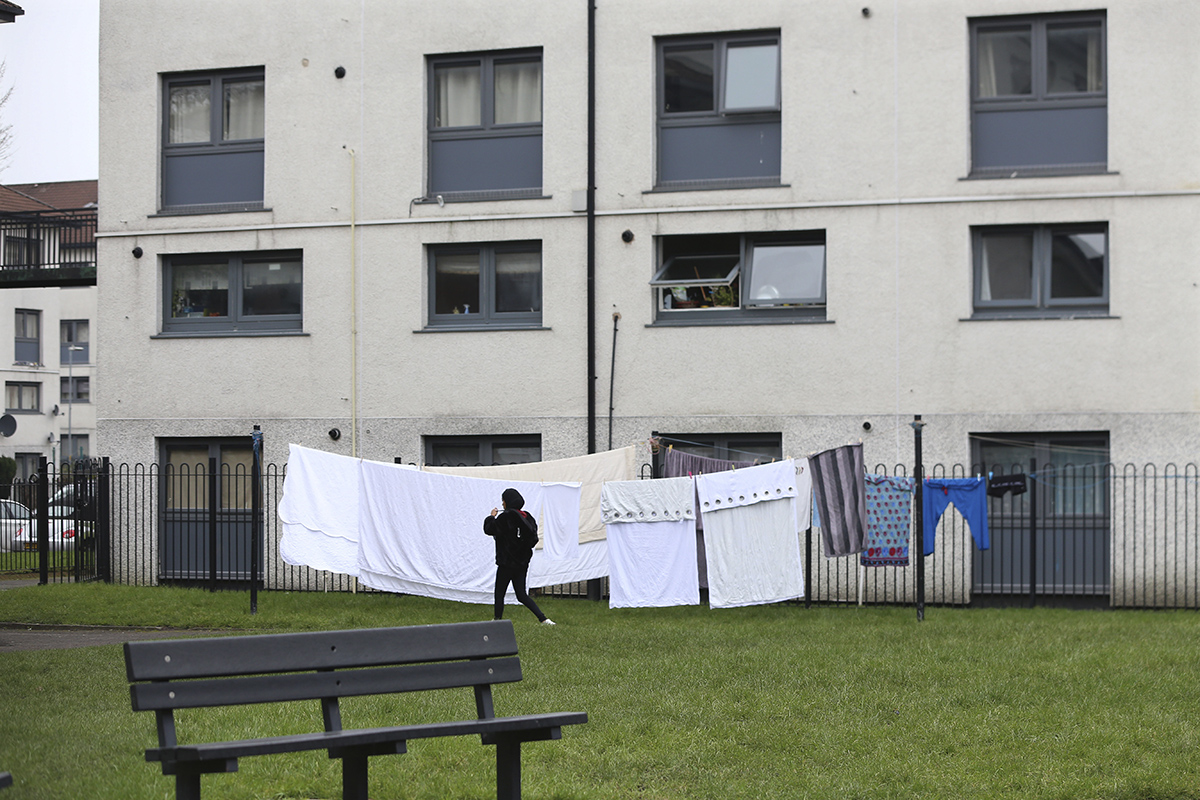You are viewing 1 of your 1 free articles
Blaming the victim
Older generations have all the power in the housing market - and that’s part of the problem
A few months ago, at an industry dinner, I was having a highly engaging conversation with an intelligent middle-aged woman, a chief executive at a trade body, albeit one not directly connected to housing. We discussed international relations, the environment, the economy; her opinions seemed eminently reasonable to me, although some of my more conservative friends might have found them a bit too Guardianista for their tastes.
Eventually we drifted onto housing. I pointed out how expensive housing was, how unaffordable it was for young people, how difficult it made life for them now compared to previous decades. Unexpectedly, she raised a sceptical eyebrow. Things had been tough for her generation, she insisted. She and her husband had lived in grotty rented accommodation, saved every penny, had never bought luxuries or gone out. In fact, their biggest treat was a pigeon culled from London’s streets. Okay, maybe not the last one – but the assertions were not that far off Monty Python’s Four Yorkshiremen sketch (For those who aren’t familiar with this piece of comedic genius, it starts with the four characters commenting on their enjoyment of a bottle of ‘Chateau de Chasselas’ and commenting on how ‘in the old days’ they would be grateful for a cup of tea. At first, they boast of having had to live ‘in one room, with no furniture, with ‘alf the floor missing’. Their boasts of nostalgic grimness become increasingly far-fetched, and by the end of the sketch they are claiming to have had ‘to get up before they went to bed’ to work ‘twenty-nine hours a day at mill’ while paying the owner for the privilege, before being murdered in cold blood every night by their parents.)
I quoted some figures, pointing out the average deposit required today, the sheer cost of mortgage payments and, most of all, the lack of disposable income. This was all rubbish, I was told. Look at young people today – they waste money on iPhones, they travel all over the world, they go out all the time to pubs and clubs. I tried over and over again to introduce statistics and facts to the conversation to no avail. My interlocutor was absolutely convinced that the problems of housing affordability were entirely due to youthful fecklessness. Never mind that statistics show that the current cohort of 15-25 year olds is the most sober and spendthrift since the 1950s – or that away from the privileged upper middle classes few get to gallivant around the world for months on end.
Worst off
In hindsight, I have already argued the point better. I was once asked about how first-time buyers could get on the property ladder. After joking that they should make sure they are born to rich parents, because inheritance has not mattered as much since the Second World War, I suggested that they should lobby for more homes to be built, everywhere, of all types (and not just affordable). Austere lifestyles, saving, working hard – well that might help some individuals leapfrog others, but ultimately the same number of people were going to be left out in the cold – it was a mathematical certainty.
But the sort of attitudes I encountered that evening are not confined to a lunatic fringe. They are actually quite widespread (although perhaps not as much as the perception that we would not need to build any houses at all, anywhere, if immigration were reduced). The comment sections of the online newspapers are full of similar arguments. And undoubtedly it has always been hard for those on relatively modest means to save a deposit.
But apart from the point about undersupply, it misses the huge advantages that generation also had, in the way of pensions, higher savings rate, lower rents, relatively available social housing, and so on. It entirely blames a generation that is facing the most difficult employment market for years and a future in which little in the way of a welfare state can be taken for granted, let alone decent housing. Ultimately, though, it is a way of justifying the status quo: I deserved to have bought a home because I struggled, therefore I deserve all the gains, there is no need for any new housing anywhere near us, that is not the problem.
Finger pointing
The greatest irony of all, though, is that, whether renting or buying, struggling twentysomethings will be paying out most of their income to subsidise the retirement of precisely those people who think they are feckless.
Unfortunately, these attitudes are likely to be more prominent in the upcoming election than those voices favouring a massive increase in supply. In demographic terms alone, older generations have enormous power; power that is amplified through their overwhelming tendency to vote. Meanwhile, twentysomethings tend to stay away from the ballot box. That is why, despite it rising up the agenda, it is not something that is genuinely seen as a votewinner, apart from perhaps in London where the crisis is so severe that it is beginning to percolate into mainstream politics.
Eventually, that will happen on a national scale, but that may be a decade or more away. Even that, though, will not change the fact that some people will always blame the victims of the housing crisis, rather than the cause.
Jon Neale is head of UK research at Jones Lang LaSalle







